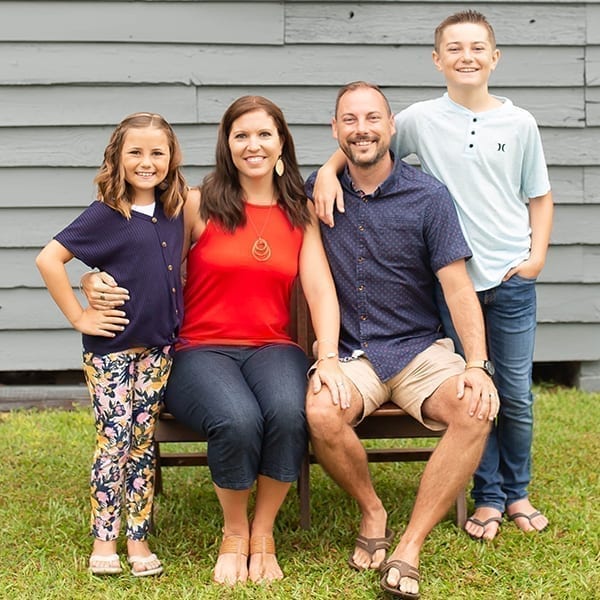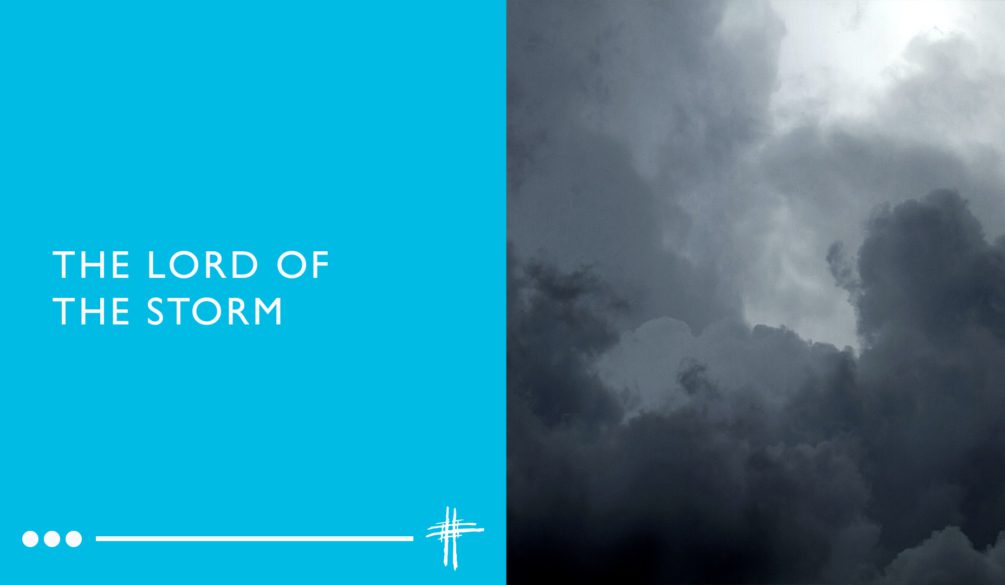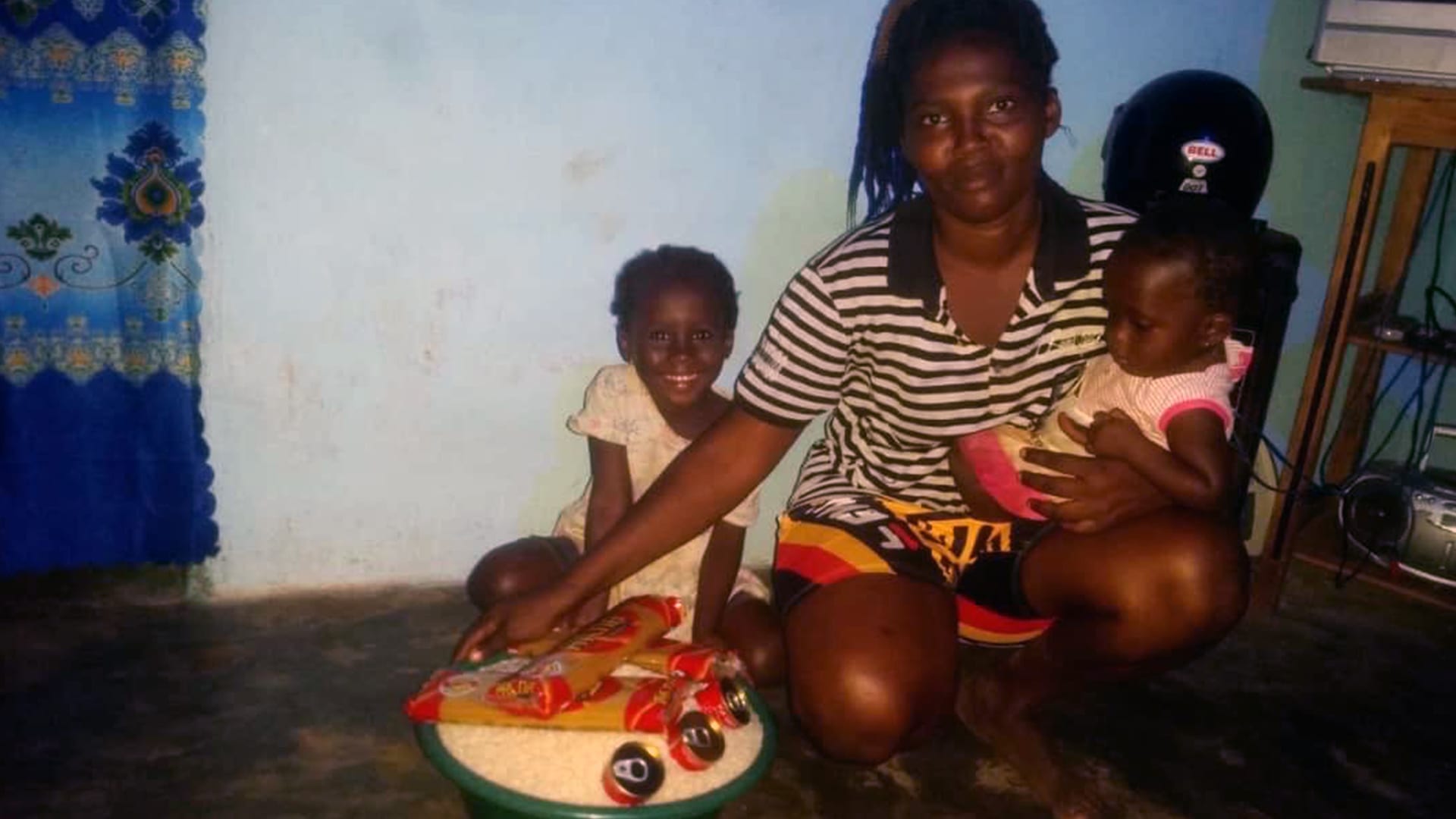2022
The Lord of the Storm
Genesis. The book that taught us about Noah, the flood, and courageous faith. But is there more to learn? Why yes, there is! But it’s a topic that we often find a little uncomfortable, and in some instances, tend to avoid. It is the topic of divine judgement. (stylerecap.com) The Bible teaches us about several different judgements. Most notably are:
- The Judgment Seat of Christ (2 Corinthians 5:10)
o The place where Christians appear before God to be rewarded for their life and service to God on earth. - Great White Throne Judgment (Revelation 20:11-15)
o The final judgment of sinners where they are judged for their rejection of Jesus and cast into the lake of fire.
As such, we can learn a lot from the story of the flood and how to prepare for God’s divine judgement. The flood provides an occasion to teach us what is beneath the judgment of God and why it is necessary.
The Necessity of Judgment
Whether we like to admit it or not, it’s human nature to question God. When we look at situations like the flood, we may ask. “Why would God destroy everyone? God is a God of love, so why does it matter what we do and how we behave?” The answer: Genesis 6 shows us that God’s judgment is the result of humanity’s violence and evil in the world. Violence corrupts and destroys creation, essentially making it unrecognizable from God’s original intent when he created it. Thus, if there is no judgment from God, there is no way to stop humanity from destroying itself once it is overcome with violence and corruption. In the case of the flood, it was a vicious cycle that God stepped into out of love to end. God is both the ultimate creator and supreme judge of all. As a supreme judge, God:
- Makes sense of the violence in nature through the lens of what is morally right and wrong.
- Gives us a way to deal with personal wrongs and offer forgiveness to others.
- Keeps us from taking matters into our own hands and allows us to let God fight our battles.
The flood teaches us that there is a God who is an ultimate creator and judge, and that the judge is not us. We have to allow God to judge for us. Now that we know why divine judgment is necessary, it is time to explore its complexities.
The Complexity of Judgment
When we look at Genesis, we see how violent the world was. The world “grieved the heart of God” and caused him immeasurable pain. Judgement, like the flood, is complex because while it ended violence and corruption, it caused God pain. The way we live, what we do, and how we experience life really matters to God. When we destroy God’s plan for our lives, it hurts him beyond measure.
Judgment is complex because:
All judgment is born out of God’s heart.
God has tied his heart to our well-being. He chooses to stay with us and not forsake us. At the cross, Christ wept in agony as he secured our redemption. God suffers when we turn to sin because God loves us and refuses to abandon us.
God does not just give judgment, but he takes judgment upon himself.
God does not just give judgment, he also takes it. His cup is filled with suffering. At the cross, he is the one that took on the weight of judgment so that we would not have to be judged. Tim Keller said, “If he’s just a God of truth, he’s not going to suffer. Right? He just smites people. If he’s just a God of love and he accepts and tolerates everybody, he’s just going to accept people. If he’s a God of truth and love, if he’s a God of holiness and absolute compassion, he suffers. It’s the nature of God. When God saw what Adam and Eve did, when God saw what we did, he knew because of who he was he was going to suffer more deeply than anybody else, and yet he let history go on. 1 “
With this, we now understand why divine judgment is complex but necessary, but what is the solution?
The Solution to Judgment
When we have an infinitely holy and loving God, there must be a solution to judgment. The flood presents a pattern for a solution we can apply to our lives. We learn from the flood that:
It is a picture of salvation through judgment.
Not salvation in spite of judgment, not salvation and judgment, not half salvation and half judgment; it’s salvation through judgment. 2 Noah escaped; God still provided a way out through the ark.
The world needed a fresh start.
Humanity’s violence destroyed the world. It was disintegrating, crumbling, decaying, and God had to stop it. The world needed a new beginning so God decided that Noah and his family would be the ones to help start over.
We need a place of safety in times of judgment.
It all comes back to Noah’s ark. God provided Noah (and will also provide to us) a solution when judgment was coming. We need to be wise, listen to God, and get into the ark.
As Christians, the flood (trouble and judgment) will come. However, it is only when we are in the ark of salvation and remember what Jesus did for us that we will be safe. Once judgements pass, we must live our lives as such or we will be crushed by guilt and despair, hate the world, or become bitter toward God and His people. We must start living today as though the judgment is past and that we are truly free in Christ.
Summing It Up
We have learned a lot today. Let’s sum it all up in a few points:
- God’s judgment is the result of humanity’s violence and evil in the world.
- God is both the ultimate creator and supreme judge of all.
- As a supreme judge, God:
o Makes sense of the violence in nature through the lens of what is morally right and wrong.
o Gives us a way to deal with personal wrongs and offer forgiveness to others.
o Keeps us from taking matters into our own hands and allows us to let God fight our battles. - Judgment is complex because:
o All judgment is born out of God’s heart.
o God does not just give judgment, but he takes judgment upon himself. - The flood presents a pattern for a solution that we can apply to our lives.
- God is both a God of love and a God of holiness.
- We are all subject to the judgment of God.
- The ark (salvation) is the way that God protects us from judgment.
- The cross simultaneously shows us the judgement of God and the love of God. God demonstrates his love toward us, in that, while we were still sinners, Christ died for us.
[1] Keller, T. J. (2013). The Timothy Keller Sermon Archive. New York City: Redeemer Presbyterian Church.
[2] Keller, T. J. (2013). The Timothy Keller Sermon Archive. New York City: Redeemer Presbyterian Church.
2020
Four Simple Ways to Help Your Students Succeed with Virtual Learning
As families head into a historically unprecedented back-to-school season, I can tell you as a fifteen-year educator that the landscape for education both public and private is complicated. Local schools and school districts are working heroically to mitigate the impacts of a global pandemic and at the same time create successful environments in person and online for learning.
Back in March, we were thrown into virtual learning, and while it wasn’t all bad, for many the experience was not positive. I had the perspective of being on both sides of the screens – on one side as a mom of two, navigating google classrooms with my kids – and on the other side as a teacher transitioning my classroom and curriculum to a virtual format.
We all learned a lot.
While the percentages vary from school to school and region to region, as we begin the 2020-21 school year, it appears that as many as a quarter to a third of all students in our NE Florida region will begin virtually. As a mom and teacher, I wanted to share four ways to help your kids succeed in virtual learning.
1. Create A Daily Schedule (and stick with it!)
While much of the schedule during the day may be dictated by your child’s school, you’ll quickly realize that there is a lot of flexible time before, during and after the virtual plan. In brick and mortar learning, these times are occupied with bathroom breaks, recess, lunch time and resource classes or in-class free time. At home, it can be very easy for these times to devolve into LOTS of screen time, TV or gaming. With a little planning up front, your kids will quickly adapt to a planned schedule that includes class work, but also might include a daily bike ride, 30 minutes of reading, lunch, and a creative project. In our house, we printed the daily schedule and hung them in a few places so the kids knew what was next. We regularly used timers with Alexa around the house to keep us on track and moving. Your kids will appreciate the change of pace, the feeling of accomplishment and the movement onto the next thing.
2. Establish “School Only” Workspaces and Behaviors
During quarantine, my oldest struggled to make the mental separation between being at home and engaging in school. That needed change in environment matters more than we realize for many kids, so creating “school specific” spaces and behaviors can be very important. If you have an empty room or flex room, turn it into a classroom and let your kids create their own spaces. Even a dedicated space at the table during the day can work. I would avoid regularly allowing school work from the bed, the couch or the floor. Also, “normal” school behaviors should be encouraged. Kids should get up, get fully dressed maybe even pack a lunch. All of these environmental changes will allow them to lock in mentally for the school day ahead.
3. Participate in All Virtual Interactive Experiences
If I look back on our virtual experience last spring with one major regret, it’s that we didn’t participate regularly in available, but optional, online group experiences. This led to a greater disconnect than I originally realized for my kids from their classmates and teachers. (kbeautypharm.com) As a teacher who was conducting these online experiences, I also began to realize how much connection they provided me with my students. As schools are heading into this year more prepared for virtual learning, I would imagine these opportunities for “hangouts” or “meets” online with teachers and classmates will increase. I would make sure students take advantage of these opportunities, especially if there is a plan to reintroduce them back into brick and mortar classrooms later in the year.
4. Engage Deeply as a Parent
After 15 years as a teacher, I can tell you that few things make more of a difference in the success of a student than a deeply engaged parent or guardian. While many of your responsibilities as the parent of a student will be similar or identical to a brick and mortar experience, there will be some unique responsibilities as a virtual parent. Ensuring your students are navigating their online classes well, staying on top of communication, and managing the ups and downs of the home / school environment will be unique for virtual families. Your commitment to be active as a parent in all these experiences will be the difference between an average and excellent virtual experience. I believe you can do it!
Everything above is simply an idea or a suggestion that might help you in these unique days. It’s important to remember we’re all doing this for the first time and we’ll need each other’s support. My husband has repeatedly said that during this time of pandemic, we are more insulated, but we don’t have to remain isolated. Maintain strong connections with your school, friends, family and local church. We’re better together!

A wife, mom of two, and a teacher for over 15 years, Jennifer Riddick has some insight on how to make the most of each day. As an experienced teacher, she understands first-hand the pressures and fears COVID-19 has presented to those in education. Jennifer took a moment to fill us in on the different ways she’s found that might help your students succeed in this new age of virtual learning.
2020
Church Donations Help Feed Hungry Families in West Africa
We constantly see stories in the news of countries like the United States, China, France, and Italy being deeply affected by COVID-19, but we don’t hear much about other smaller countries. Some of the smaller countries somehow go unnoticed. While the actual virus might not take as many lives in these areas, the breakdown of the global supply chain will.
We’ve been in contact with our missionary partners around the world, and they’ve been telling us of the immense suffering taking place in the areas where they are currently serving. JJ Alderman is one the missionaries who our church has the privilege to partner with; he has been a missionary to Togo, West Africa for many years.
JJ told us that since the beginning of March, the entire region has been shut down for travel between cities for all their people. This causes tremendous problems because people must travel to the more populated areas to earn money and purchase food for their families. (no prescription pharmacy paypal) Additionally, due to the enforcement of strict social distancing laws, people aren’t allowed to ride together on motorcycles – the most popular means of transportation in their area. This dramatically increases the difficulty for the people of West Africa to both earn money and purchase basic things they need to live.
With less people purchasing food, the prices for things like corn and grain have skyrocketed nearly 100%. Additionally, JJ told us that 50%-75% of the people in that region are struggling to find food or are out of food completely.
As a church, we will do all we can to minister to those in need. After hearing about this tragedy, we partnered with JJ to send food to the people we are ultimately trying to reach with the love of Jesus. Because of generous givers like you giving to Trinity’s COVID-19 Relief Fund, we were able to purchase 38 bags of corn weighing 100lbs each and ship it directly to these people.
The images you’re seeing are some of the many individuals who have received the valuable food supplies that we have sent. We thank you for your continued support of our ministry both here in Jacksonville, and around the world. With you, we are truly making a difference in the lives of many!
Click here to donate today: https://tbc.org/give/



